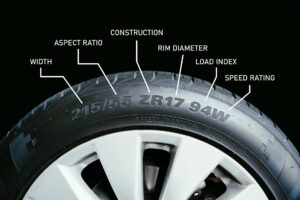Are you a proud owner of a reliable four-wheeler but suddenly noticing strange noises or smells coming from the hood? If so, it could be time to check an often-overlooked culprit – your car’s filtration system. Here’s a comprehensive list of broken air filter box symptoms – the tell-tale signs that will help you diagnose (and fix!) any problems before they start affecting performance or putting safety at risk.
The most obvious symptoms of this vehicle component being broken or damaged are cracks or holes in the body. Additionally, a common problem is a clogged-up air filter or one with a corrosive surface. All of these physical problems can cause further damage to the internal system, and the most common tell-tale signs of this are decreased engine performance, reduced fuel efficiency, increased emissions, unusual engine noises, as well as the most obvious of all – your check engine light going off.
What Is an Air Filter Box?
A vehicle is made out of numerous complex components that each have a vital role in the system as a whole. However, some parts are easier to overlook than others – for example, no one would think that a four-wheeler could perform the same way without a car battery. However, they’d probably think a fan clutch or the engine’s spark plugs aren’t that important.
This is a huge misconception – the vehicle would render itself useless in mere days without these parts, and the same goes for the engine’s air filter box. This essential component of an engine’s air intake system houses the air filter and is typically located between the air intake hose and the throttle body or carburetor. Air filter technology has evolved to include options that provide superior filtration without compromising airflow. For example, K&N’s unique oiled cotton gauze air filters can maintain up to 60% of their maximum flow capacity even after 50,000 miles of use, which is significantly higher than standard paper filters that can lose up to 70% airflow at their service interval around 14,000 miles. So, let’s look at why this important piece of the puzzle shouldn’t be overlooked anymore.
Why Is It Important for It to Work?
The air filter box is designed to protect the engine from dust, dirt, and other harmful particles that may enter the system and cause internal damage or decrease performance. Additionally, a malfunctioning air filter box or a dirty and clogged air filter can lead to decreased fuel efficiency and increased emissions.
All in all, this easily overlooked vehicle component actually plays a vital role in maintaining the optimal performance and longevity of the engine, and you don’t have to be a die-hard gearhead to understand just how important that is. So, if you’re wondering – Is my air filter box broken? Let’s go over each possible sign so you can deal with the problem as soon as possible.
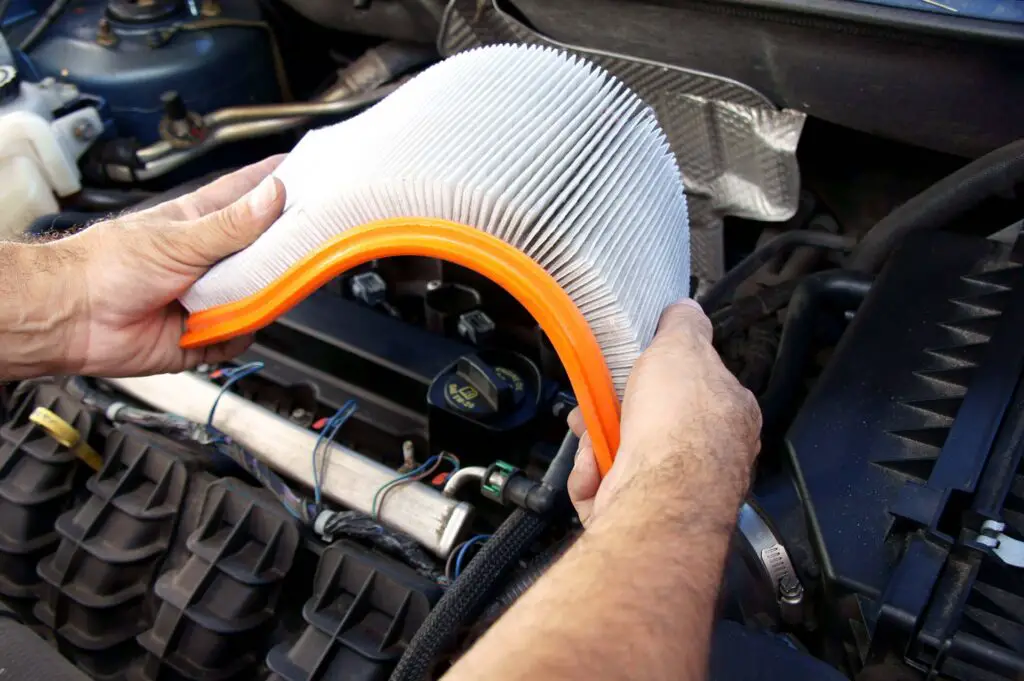
Decreased Engine Performance Is One of the Broken Air Filter Box Symptoms
Probably the most common symptom of a broken air filter box is the overall decrease in engine performance. As mentioned, the filter is responsible for preventing harmful particles from entering the system. If the box is broken or the filter is clogged, the engine may not receive enough clean air to operate efficiently.
This problem can go both ways. If the component is damaged, it may allow contaminants to bypass the filter and enter the engine, causing further damage to the internal system. On the other hand, a clogged or dirty filter can restrict airflow, resulting in decreased power and acceleration.
This Scenario of a Broken Air Filter Box Can Potentially Be Very Dangerous
A broken air filter box or a clogged filter can result in decreased acceleration, reduced power, and fuel efficiency. The engine may also produce a rough idle or hesitation when accelerating, and in some cases, it can suddenly shut down. These symptoms may occur intermittently or persistently, depending on the severity of the issue.
Obviously, misfiring or stalling can be very dangerous in certain driving conditions, especially if you’re taking a road trip through the famous routes in the USA or daily commuting through one of the cities with the worst drivers. That’s why it’s important to have your engine inspected by a qualified mechanic as soon as you start noticing any of the aforementioned symptoms.
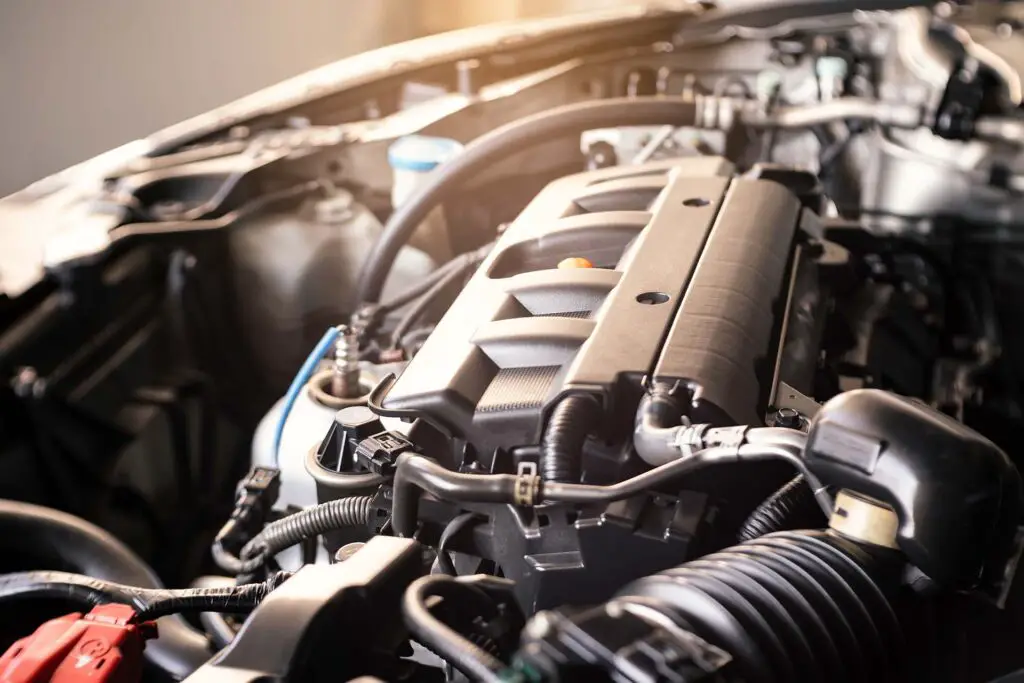
Unusual Engine Noises Can Also Indicate That Air Filter Box Is Broken
Apart from noticing a decrease in acceleration, power, and fuel efficiency, harmful particles or restricted airflow to the engine can cause it to work harder and produce unusual noises. This might be the easiest to catch on to of all possible symptoms, as the noises can be strange and loud.
Types of Noises to Watch Out For
There are several types of unusual engine noises to watch out for that may indicate a broken air filter box or a clogged-up filter:
- Knocking – usually indicates there is damage to the internal components,
- Tapping – like knocking, it can point to harmful particles entering the engine system,
- Hissing – may indicate air leaking out of a damaged air filter box,
- Whistling or wheezing – can be caused by a clogged or dirty air filter, as the engine struggles to get enough air,
- Grinding or rumbling – may indicate that the air filter box is loose or vibrating.
If you start hearing any of the unusual noises listed above, it is important to seek professional assistance. Professionals will determine the underlying problem to make necessary repairs and prevent further damage. One quick visit to your local mechanic can go a long way in helping you avoid significant repair fees that add up to the cost of owning a car.
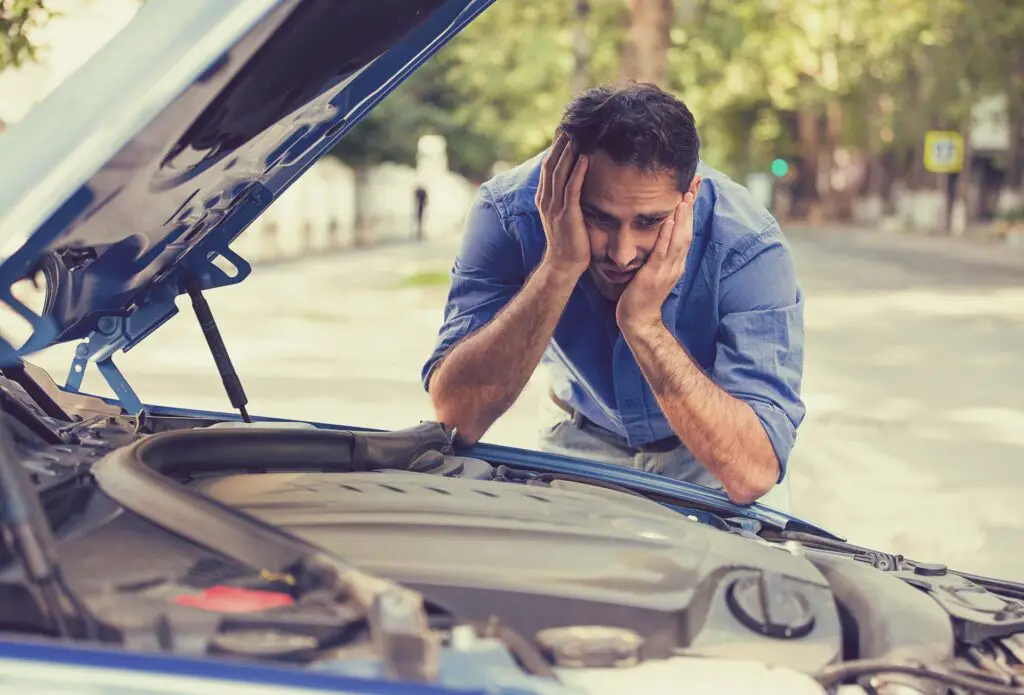
Decreased Fuel Efficiency Can Tip You off That Something Is Wrong
As mentioned, decreased fuel efficiency can clearly indicate something is wrong with your engine, and a common culprit is a damaged air filter box. No matter if it’s broken, clogged, or dirty, the engine needs to work harder due to the restricted airflow, and it compensates for it by using up more fuel. Obviously, this increased fuel consumption can lead to reduced fuel efficiency.
Every make and model has specific fuel economy estimates, and the actual mileage may vary depending on driving habits, terrain, and weather conditions. While keeping this in mind, here’s a list of fuel consumption estimates along with the type of vehicle:
| Vehicle Type | Average MPG |
| Sedan | 25-35 MPG |
| SUV | 20-30 MPG |
| Pickup Truck | 15-25 MPG |
| Sports Car | 20-30 MPG |
| Hybrid | 40-50 MPG |
| Electric | 100+ MPG |
It’s Important to Address This Issue Head on to Save Money in the Long Run
No matter if you own a brand-new car, a used vehicle, or even one with a salvage title, chances are you’ve paid a high car price for your trusted road companion. That’s why addressing any engine performance issues, including reduced fuel efficiency, should be done as soon as possible.
After all, having your air filter box and filter inspected and replaced if necessary can help ensure that your engine is operating at optimal efficiency, which will save you money on gas in the long run.

Check Engine Light Is a Warning Sign as Well
The check engine light is a warning signal that appears on a vehicle’s dashboard to indicate that there is an issue with the engine or emission control system. The light is triggered by the car’s onboard diagnostic system (OBD), which constantly monitors the vehicle’s performance and emissions. When this system detects a problem, it sends a signal to the check engine light to turn on.
There Is a Variety of Engine Issues That Can Be Detected by This System
This light can indicate a variety of issues ranging from minor problems like a loose gas cap to major problems like a malfunctioning catalytic converter. One of the possible culprits can be a damaged air filter box or clogged-up filter, as it leads to increased emissions which can be detected by the OBD system. So, it’s best to get your vehicle diagnosed by a professional mechanic to determine the exact source of the problem.
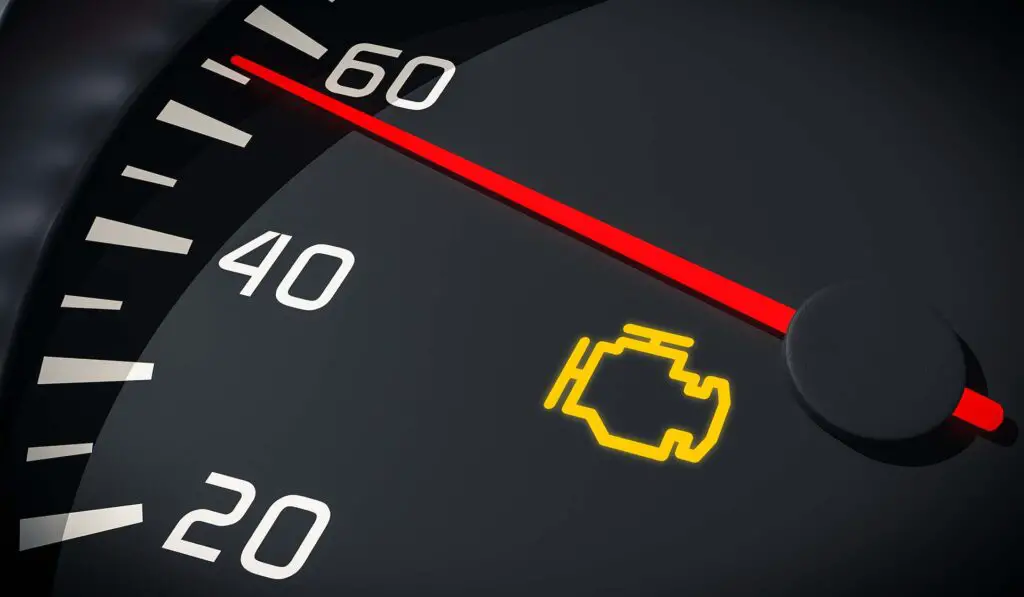
Pay Attention to Visual Signs of Damage
Now that I’ve covered the internal engine issues, such as reduced performance and fuel efficiency, as well as increased emissions, let’s talk about the more obvious signs that can be seen on the outside. Noticing these physical signs of damage can help you address the problem even before any engine issues further develop – obviously, this can save you lots of driving anxiety and money in the long run.
Types of Damage to Look For
When looking for any visual signs of damage, there are several things that should be checked, as they may indicate issues with the system. First things first, it’s important to inspect this component for any signs of damage, such as cracks or holes in the box itself or the filter. As already mentioned, a damaged air filter box can allow contaminants to enter the engine, and this can result in further internal damage.
Additionally, it should be checked if the filter is dark and dirty, as it can significantly restrict airflow to the engine. Also, signs of wear or corrosion on the air filter box or its components may indicate that it is in need of replacement. Last but not least, you should also see if the box is loose or misaligned, as it can cause unusual sounds and vibrations.
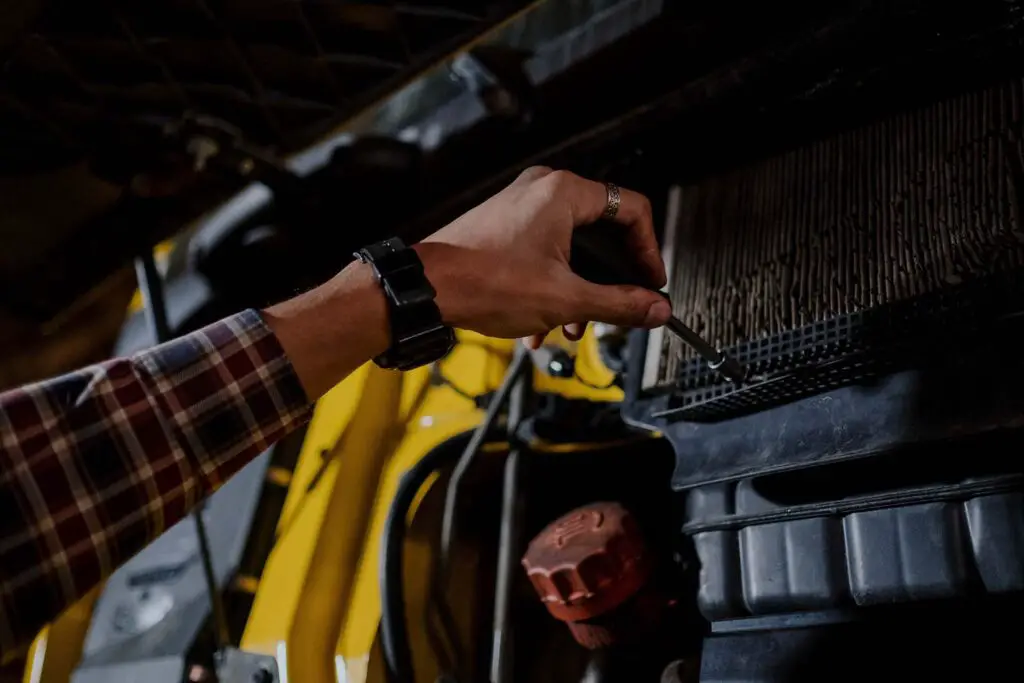
Pay Attention to Symptoms and You’ll Know When to Replace Your Car’s Air Filter Box
With regular vehicle maintenance and inspection of essential components, including the air filter box, car enthusiasts can take proactive measures to avoid costly repairs – saving time, money, and hassle. If you’re dealing with any of these symptoms mentioned above, the most expeditious course of action is to replace this component right away.
It’s better to be safe than sorry – don’t wait until further damage ensues. Find a reliable auto service center with knowledgeable mechanics who can help diagnose and repair your car quickly and properly. Putting off seemingly minor details can often lead to far greater expense down the road – so stay in tune with your vehicle’s needs before embarking on any trips!



